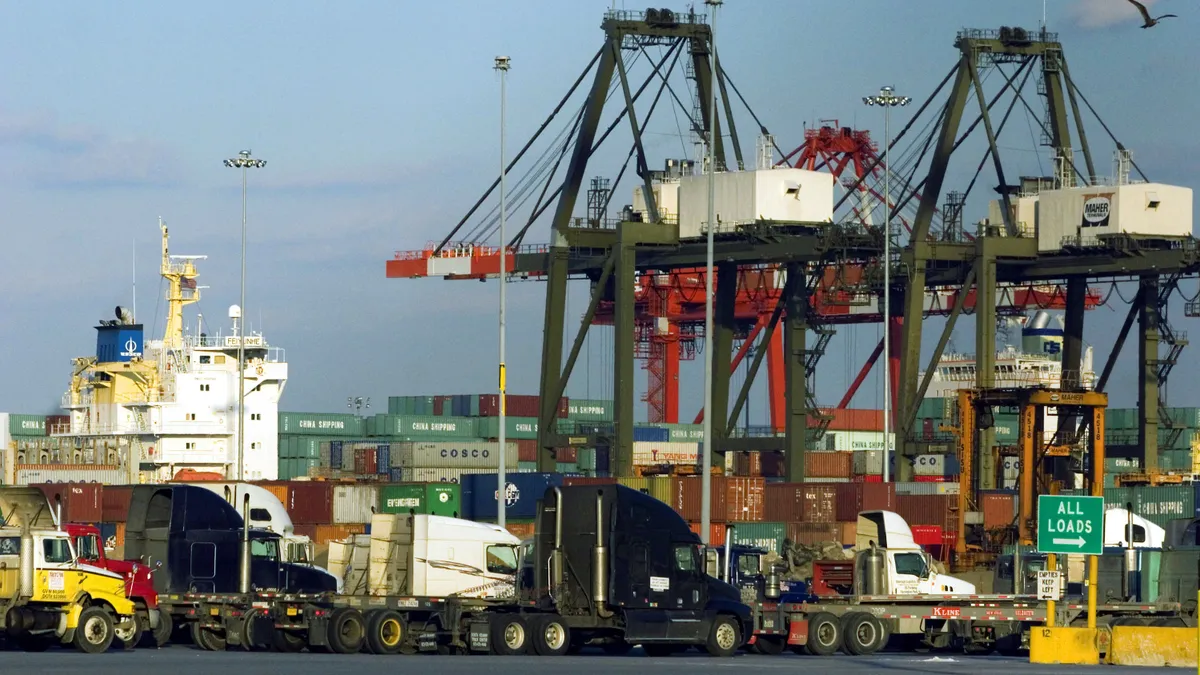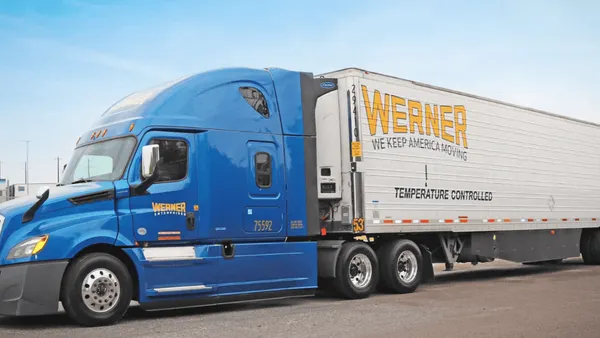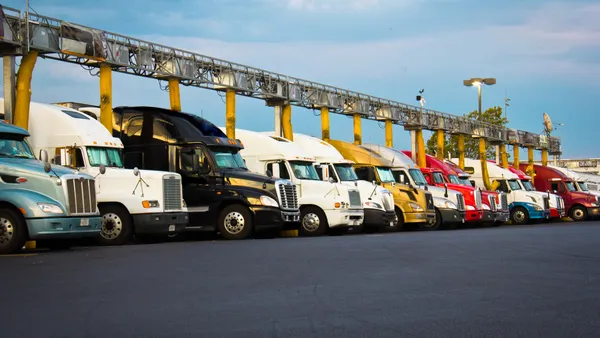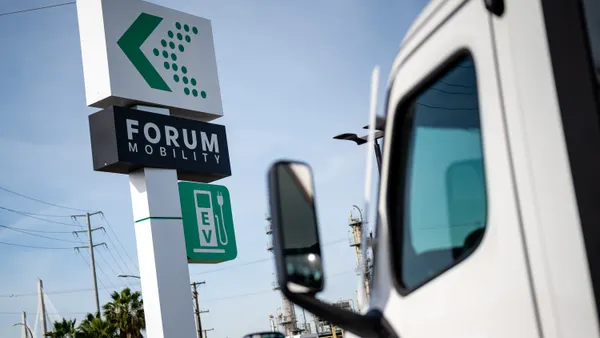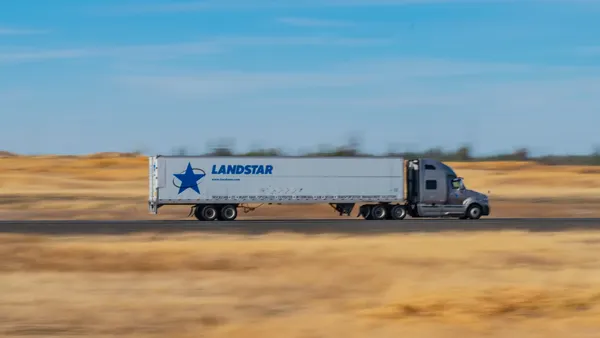Dive Brief:
- J.B. Hunt launched a transload service in the New York metro area, the carrier announced Friday. The company aims to "accelerate freight movement and improve container fluidity," Chief Commercial Officer Shelley Simpson said in a statement.
- The transload service will run out of a facility in Jersey City, New Jersey, which J.B. Hunt recently expanded. The company said it includes parking, is open 24/7 and is located near major railroads and port terminals.
- The service comes as shippers rely more on East Coast ports and intermodal services to avoid West Coast port congestion. The Port of New York/New Jersey handled more than 3.4 million loaded import TEUs from the start of 2021 through September — a 23% increase from the previous year.
Import volumes climb at East Coast ports
Dive Insight:
Transloading has long been a target growth area for J.B. Hunt, President of Intermodal Darren Field said during the company's latest earnings call. Demand for the service has risen, and there will be more opportunity to capitalize on that in the coming years, he added.
"For a long time, our target for growth in intermodal has been highway conversion first," Field said. "But, certainly, we have felt that domestic intermodal in a 53-foot container was a benefit to shippers importing through Southern California and ... certainly does represent an opportunity."
Railroad constraints, such as ramp congestion and labor headwinds, are another opportunity that has left room for J.B. Hunt to rethink intermodal, Simpson said. The company has three advantages it can use at railroads, she said: J.B. Hunt controls its own chassis, drivers and containers.
Domestic containers hold up to 50% more cargo than international ones, which makes transloading a financially appealing option for many companies, according to Michael Leue, CEO of the Alameda Corridor Transportation Authority, which oversees the rail corridor serving the ports of Los Angeles and Long Beach in California.
"You're doing less handling with more cargo," he said.
Transloading also allows shippers to bypass large, regional distribution centers and ship directly to a store or fulfillment center.
Supply chain disruptions have prompted J.B. Hunt's customers to take matters into their own hands as much as possible, J.B. Hunt COO Nick Hobbs said on the call. That's easier to achieve with a carrier partner that offers multiple services, such as drayage and transloading, like J.B. Hunt does, he said.
"It’s really about customers gaining control of their supply chain, and that fits very well with us," Hobbs said.
The addition of transloading capabilities makes the Jersey City location a "one-stop source" for importers in the area looking to move their goods domestically, J.B. Hunt said.
Some shippers and 3PLs have diverted freight to the East Coast ports to circumvent West Coast congestion. J.B. Hunt Intermodal and Highway Services operate out of the Jersey City facility, so customers can access port drayage and linehaul services to anywhere in the U.S.
The transloading service in the New York area is also a way to keep fluidity as East Coast ports gain volume.
"Our [congestion] problem is big and highlighted on the West Coast. But trust me, it's up and down the East Coast as well," said Steve O'Neil, supply chain specialist at Port X Logistics, adding that ports in New York/New Jersey, Norfolk and Savannah all have vessels at anchor.
Shefali Kapadia contributed to this story.


